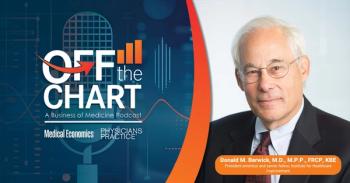
Now is the Best Time to Start a Concierge Program in Your Practice
A lot of physicians have considered concierge medicine in the past but hesitated; now is the time to reconsider.
Recently, my staff and I hosted a patient meeting to talk about the start of our client physician’s new hybrid program of concierge care. The physician explained to his patients that he is under significant stress in today’s healthcare environment and that he simply can’t continue to deliver the level of service that he has been delivering without some changes.
He, like most of the physicians that we work with, has a practice philosophy of offering high levels of patient care and contact. He believes he already delivers concierge care, only he does not get reimbursed for those services. Now, he told his patients, he has to take action and make tough choices to protect his practice and his patients from the changes that have already occurred in medicine and from those they see coming down the line.
On the doctor side
For years primary-care physicians' fears and concerns generally centered around three things: possible Medicare cuts, the difference in reimbursement rates for larger entities than for smaller ones, and the constant irritant of payers who control the process (proper coding, following network referral rules, prescription rules, and denials). Each year, doctors would once again dread the prospect of a double digit cut in their Medicare fees at the end of each year. Plus, payments were always in flux - as was what was rejected or approved, and how much time and money was spent on just getting paid for what was done appropriately. There was always something.
Now, there are new concerns, such as the implementation of EHRs. Despite the opportunity to have government support for the costs of these new systems, the operational impact on established physicians has been significant. More and more time has shifted to gathering and loading information and supervising others. Plus, there is the management and decision-making, as well as the implementation and maintenance of the system.
The ongoing costs are also not inconsequential. For many physicians, technology mandates have impeded their productivity and effectiveness.
Other concerns include the fear of how compensation and control will be taken away from them under accountable care organizations and exchange products.
The result is more and more doctors moving in two directions: giving up their practice by either selling or retiring, or moving toward a concierge style of practice.
For all these reasons, the interest level in concierge care has never been higher.
On the patient side
Patients are finally seeing what has been reported for years - there is a real shortage of primary-care physicians. Additionally, the constant barrage from politicians about Obamacare has heightened awareness about the U.S. healthcare system and the coming changes. There are already more nonphysician providers than ever before, and that number is expected to grow in the future. For older patients, who are sometimes wiser, there is a strong preference for physician care, not care from a physician assistant or nurse practitioner.
So what happened at our patient meeting?
The percentage of patients who joined our physician’s new hybrid concierge program was one of the largest in company history. And every day we see more and more patients join existing concierge programs from our continued outreach to traditional patients in our physicians’ practices.
What makes the hybrid and sometimes the full model so appealing to doctors is that it creates a different revenue stream that is controlled by the physician, not the payers. As such, it is reliable, predictable, and offers much more per hour of practice than the traditional practice model. And what makes it so appealing to patients is the promise of continued care and service from their personal physician - not a nonphysician provider or a doctor in rotation.
From the market trends we are witnessing, now is not the time to give up on your practice and sell out; now is the time to explore options and to consider a concierge program.
Newsletter
Optimize your practice with the Physicians Practice newsletter, offering management pearls, leadership tips, and business strategies tailored for practice administrators and physicians of any specialty.









